In order to give you everything you need to thrive, this blog covers some of the more popular, regular queries and provides other key information that individuals weighing up supply work should be aware of – all in one place.
How do I manage difficult pupil behaviour when I’m new to the school?
The most effective method of managing challenging pupil behaviour is to follow the institution’s approach to discipline and the information provided by the specific teacher you are covering. Those who work as a school’s bank of supply staff will, of course, find it far easier to ensure they are implementing the best protocol in these situations. However, if you are entering a school or Trust for the first time and are an unfamiliar face, there is always the possibility that some pupils may ‘act up’. This is where your experience from other assignments should come in, and of course, if needed, don’t be afraid to seek out additional support from other members of staff.
What does a typical day look like as a supply teacher?
This is a difficult question to answer as, for most professionals, no two days will ever be the same. This statement is also true for most teachers. Still, supply specialists in particular experience a wider range of different environments, pupils and colleagues daily and therefore benefit from an incredible variety. This appeals to many professionals who prefer this diversity, but it can also be beneficial in terms of skills development too. Teachers who have operated in different types of institutions and faced a range of challenges will be ideally prepared to tackle a wider range of situations and eventualities in the future.
How do I handle the stress of a last-minute assignment?
The adage ‘fail to prepare, prepare to fail’ is particularly accurate in education, and all teachers, both permanent and supply, can benefit from having a plan in place. However, this is difficult if you only learn of your assignment a matter of hours before starting, and it’s therefore understandable that most professionals would consider that this could be a stressful situation. But there are ways around the challenges. For example, having ‘template’ lesson plans mapped out for use in these scenarios, which can be applied to different age groups or seniority levels, can drastically reduce stress levels and enable supply teachers to feel better prepared.
Equally, part of overall wellbeing is being able to manage mental health. Education is recognised as one of the most stressful disciplines, and for supply teachers, being called upon at short notice can be understandably anxiety-inducing. Practising meditation or breathing techniques, for example, can make a huge difference and allow professionals to deal with a wider array of situations and scenarios without feeling anxious or overwhelmed.
How can working as a supply teacher help my career development?
Supply teaching provides exposure to a far broader range of environments in just a year than most permanent staffers would gain in their entire career. This breadth of experience provides a perfect platform to develop competencies and learn how to tackle a wide array of challenges that may be unachievable in full-time positions.
Working in this way also helps to build confidence, sharpen classroom management skills and develop a deeper understanding of different learning environments. Supply specialists will quickly learn how to adapt to varying teaching styles and expectations, which can be hugely beneficial to their ongoing development.
What qualities make someone an effective supply teacher?
The core trait is naturally an aptitude for teaching, but other key attributes possessed by the best supply specialists are flexibility, resilience and professionalism, all of which will enable individuals to adapt quickly to new roles, environments and demands. In addition, an often overlooked – but very important – quality is having a sense of humour, and the ability to deal with testing situations with a positive outlook. All supply professionals will face difficulties in their careers, but it’s the response that dictates their success.
How do I build relationships with an institution when I’m only there for a day or two?
We have covered this subject in more detail in a recent blog; however, there are several core methods to build relationships with institutions quickly and for teachers to position themselves at the top of the list when they look for a supply teacher. One of the most effective methods is to seek feedback about performance; not only will this help to develop skills further, but it also highlights the right qualities to the employer. In addition, seemingly smaller aspects like being punctual and fulfilling administrative requirements all help position a teacher appropriately in the eyes of senior leadership. However, perhaps the most effective way is to build rapport with teaching colleagues and other staff. This may require stepping out of comfort zones for some, but creating the initial relationship and learning more about them on a personal basis helps to forge stronger bonds, and will benefit professionals in the long term. And, equally importantly, this makes the job more rewarding and enjoyable.
We also received several other questions that we don’t have space to answer in this piece, but that we have discussed in more detail in the recent past, including:
- What does AI mean for the future of supply teaching?
- How can I access training and development opportunities?
- How do I succeed as a new supply teacher?
- How do I manage larger class sizes?
What kind of questions could I face during registration or interview?
Now that you know more about what to expect when working as a supply teacher, it’s important to prepare for the interview. The types of questions posed can vary by role, employer and institution type; however, there are several that are almost always asked to all candidates. At a broad level, the supply agency interviewer will want to gain an understanding of an applicant’s background, experience and approach to handling different challenges in order to find the right opportunities that match with their skills and experience. The answers naturally depend on personal experience, but it’s always a good idea to adopt the STAR (Situation, Task, Approach, Results) method, as this provides a logical structure that interviewers can easily follow and assess against their criteria.
Some of the more common questions include:
- Why do you believe you are well-suited to this role?
- What made you choose supply teaching over a permanent position?
- How do you stay motivated when teaching in different schools with unfamiliar students?
- How do you establish authority and respect in a new classroom setting?
- What strategies do you use to manage challenging behaviour in a short-term assignment?
- How do you prepare for a day in a school you’ve never worked at before?
- What methods do you use to assess student understanding during a lesson?
If you are seeking your next supply role or if your institution is looking for teaching specialists that align with their cultural and educational values, get in touch with our expert team.
Read more of our blogs, or search for your next specialist supply role.


 Schools
Schools
 Further Education
Further Education
 Case Studies
Case Studies
 Submit a Job
Submit a Job

 Candidates
Candidates
 Job Search
Job Search
 Refer a Friend
Refer a Friend
 DBS Check
DBS Check

 National
National
 Our Partners
Our Partners
 Safeguarding
Safeguarding
 Supply Agencies
Supply Agencies
 Technology
Technology

 About Us
About Us
 Careers
Careers
 Contact Us
Contact Us
 Reviews
Reviews

 Insights
Insights
 Support Hub
Support Hub


